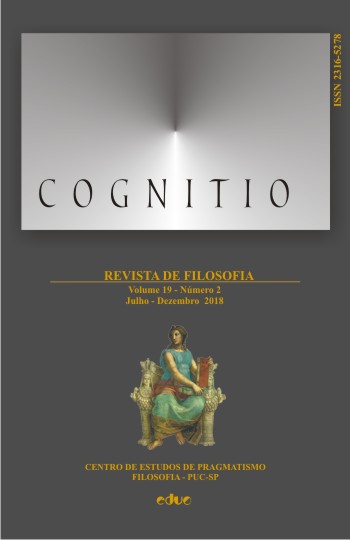The place of biology and anthropology in Dewey’s ethical project
DOI:
https://doi.org/10.23925/2316-5278.2018v19i2p270-281Keywords:
Anthropology, Dewey, Ethics, Evolution theoryAbstract
This article focuses on Dewey’s uses of scientific and evolutionary insights in ethics. To begin with, an overview of Dewey’s ethics is presented. It is pointed out that his position on ethics must be understood as a political project that advocates for the use of scientific knowledge in dealing with ethical and political conflicts. In turn, this point of view is based on the thesis of the material and methodological continuity between science and ethics. The second section addresses the question of Dewey’s approach to the bond of science and philosophy in general, and the value of evolutionary theory and anthropology to ethics in particular. Contrary to some current interpretations, it is argued that, according to Dewey, biology and evolution theory do not have the only nor the final say on ethics, and that in his opinion the relevance of anthropology and social sciences must not be overlooked. Moreover, it is argued that the material continuity between science and ethics highlights the importance of a scientifically informed ethical deliberation when facing ethical problems, while the methodological continuity shows how it is possible to reach sound conclusions in ethics but also the relevance of what can be called genealogical critiques concerning inherited moral beliefs.Downloads
Published
2019-02-01
How to Cite
López, F. (2019). The place of biology and anthropology in Dewey’s ethical project. Cognitio: Revista De Filosofia, 19(2), 270–281. https://doi.org/10.23925/2316-5278.2018v19i2p270-281
Issue
Section
Cognitio Papers









